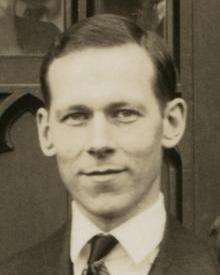A Quote by J. C. R. Licklider
Men are noisy, narrow-band devices, but their nervous systems have very many parallel and simultaneously active channels. Relative to men, computing machines are very fast and very accurate, but they are constrained to perform only one or a few elementary operations at a time. Men are flexible, capable of "programming themselves contingently" on the basis of newly received information. Computing machines are single-minded, constrained by their "pre-programming."
Quote Topics
Accurate
Active
Band
Basis
Capable
Channels
Computing
Constrained
Devices
Elementary
Fast
Few
Flexible
Information
Machines
Many
Men
Minded
Narrow
Nervous
Nervous System
Noisy
Only
Operations
Parallel
Perform
Programming
Received
Relative
Simultaneously
Single
Single-Minded
Systems
Themselves
Time
Very
Related Quotes
I would like to emphasize strongly my belief that the era of computing chemists, when hundreds if not thousands of chemists will go to the computing machine instead of the laboratory for increasingly many facets of chemical information, is already at hand. There is only one obstacle, namely that someone must pay for the computing time.
Machines help us do things more quickly and efficiently, but they can also destroy some community activities. Machines can also throw the weakest people out of work and this would be sad, because their small contribution to the housework or cooking is their way of giving something to the community. People who are capable of doing things very quickly with the help of machines become tremendously busy, always active, in charge of everyone - a bit like machines themselves.
My mother was very, very beautiful, and I saw that the beautiful women around me were often constrained not only by their beauty but by the way that being an object of male desire frequently caused violence in their lives. And it caused them to be constrained in these terribly sad ways - their brilliance was not valued.
Cloud computing means you are doing your computing on somebody else's computer. Looking ahead a little, I firmly believe cloud - previously called grid computing - will become very widespread. It's much cheaper than buying your own computing infrastructure, or maybe you don't have the power to do what you want on your own computer.
There is a biological power that is intrinsic to the woman, to the female condition. Because you are able to give life. You are the reproducer of the species. Men feel very weak in front of a woman because a woman is capable of eliciting a number of instincts in a man. And that is what has made men very nervous about women.





































